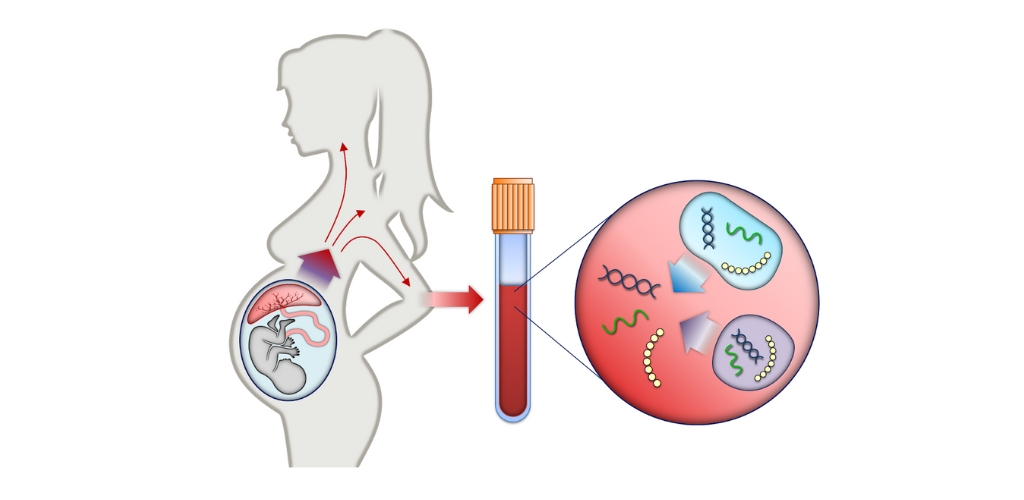Pregnant women have long faced the dilemma of balancing their desire for information about their developing baby with the risks associated with invasive prenatal testing procedures. Thankfully, NGS-based Non-invasive prenatal testing (NIPT) offers a revolutionary approach, providing valuable insights into fetal health without the risks of traditional methods. This blog delves deep into NIPT, exploring its benefits, limitations, and how it can empower expecting parents.
What is NIPT?
NIPT utilizes next-generation sequencing (NGS) technology to analyze cell-free fetal DNA (cffDNA) found in a pregnant woman’s blood. This DNA, shed by the placenta, carries genetic information about the developing baby. By analyzing this cffDNA, NIPT can screen for chromosomal abnormalities like Down syndrome, Edwards syndrome, and Patau syndrome with high accuracy.
Benefits of NIPT:
- Non-invasive: Unlike amniocentesis and chorionic villus sampling (CVS), NIPT requires only a simple blood draw, eliminating risks associated with invasive procedures.
- Early detection: NIPT can be performed as early as 10 weeks of pregnancy, offering valuable information early in the prenatal journey.
- High accuracy: NIPT boasts high detection rates for common chromosomal abnormalities, exceeding the accuracy of traditional screening methods.
- Reduced anxiety: By providing early and accurate information, NIPT can alleviate anxiety for expecting parents, allowing them to make informed decisions.
Limitations and considerations:
- NIPT is a screening test, not a diagnostic test. Further confirmation through invasive procedures might be necessary in some cases.
- NIPT cannot detect all chromosomal abnormalities. It is crucial to understand its limitations and discuss concerns with your healthcare provider.
- Ethical considerations: NIPT raises ethical questions regarding the potential misuse of genetic information. It’s essential to approach this test thoughtfully and ethically.
Who should consider NIPT?
NIPT is suitable for all pregnant women, regardless of age or risk factors. However, it is particularly beneficial for:
- Women with a higher risk of chromosomal abnormalities due to age or family history.
- Women who have undergone previous pregnancies with chromosomal abnormalities.
- Women seeking early reassurance about their baby’s health.
Before opting for NIPT, consult your healthcare provider to discuss your individual needs and concerns. They can guide you through the process, ensure you understand the test’s implications, and help you make informed decisions for your pregnancy journey.




